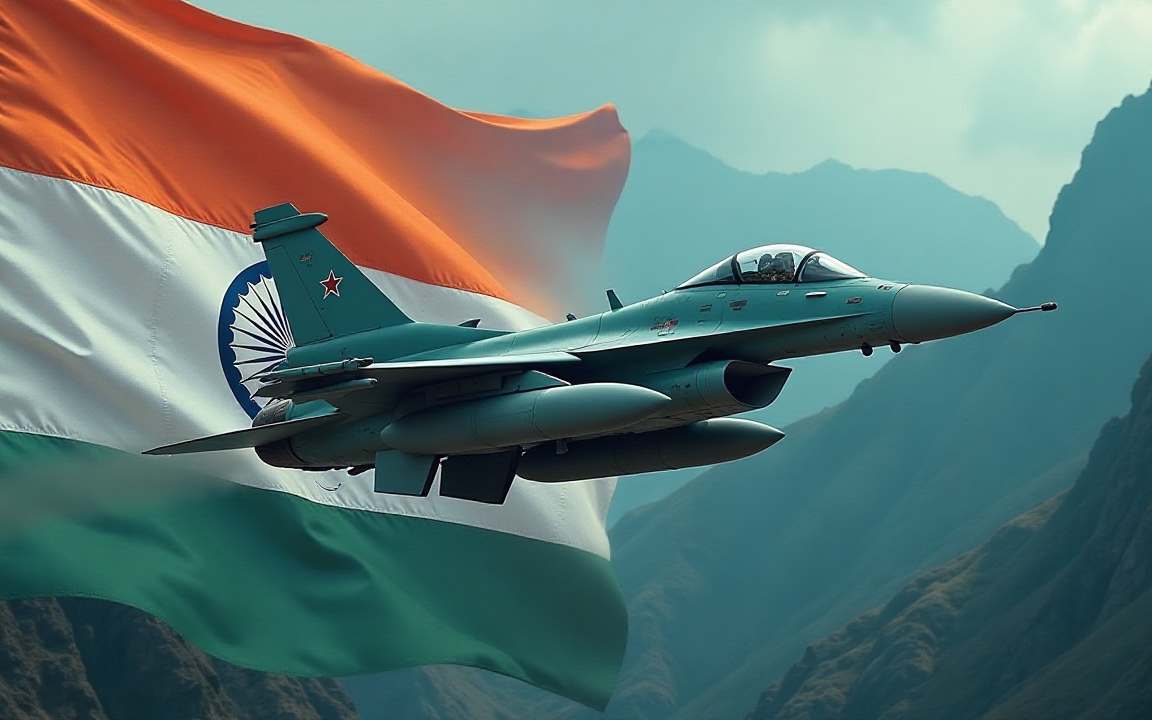
Indians woke up to the news of the country launching a series of coordinated missile strikes early Wednesday on terror infrastructure located across Pakistan and Pakistan-administered Kashmir.
The military action, named ‘Operation Sindoor’ comes just two weeks after a deadly militant attack on tourists in Indian-administered Kashmir’s Pahalgam that left 26 civilians dead.
The action received bipartisan support in India, while many global players, including China, and the United Nations urged “restraint”.
Meanwhile, kin of those slain in the unfortunate Pahalgam attack welcomed the action, calling it a “befitting reply”.
Proud of our armed forces.
#OperationSindoor is Bharat’s response to the brutal killing of our innocent brothers in Pahalgam.
The Modi government is resolved to give a befitting response to any attack on India and its people. Bharat remains firmly committed to eradicating
39.9K
Reply
Copy link
Operation important to deter further such attacks: Indian officials
Foreign Secretary Vikram Misri, addressing a press briefing in New Delhi on Wednesday said the goal of the terror attack in Pahalgam was to destabilise Jammu and Kashmir and damage its booming tourism.
Misri added that The Resistance Front (TRF), a group linked to Lashkar-e-Taiba (LeT), claimed responsibility for the killings and is acting as an arm of Lashkar-e-Taiba (LeT) to derail Kashmir’s growth.
“A group called the Resistance Front has claimed responsibility for Pahalgam attack. This group is connected with Lashkar-e Taiba. Pakistan links have been established in this attack. On April 25, Pakistan’s pressure to remove the reference to TRF from the media release shouldn’t be ignored. Pahalgam terrorist attack has exposed the links of Pakistan with terrorists,” he added.
Investigations into the #Pahalgam terror attack have brought out the communication nodes of terrorists, in and to Pakistan. The claims made by The Resistance Front and their reposting by known social media handles of the Lashkar-e Taiba speak for themselves. Identification of the
View replies
82
Reply
Copy link
“Our intelligence agencies monitoring terrorist activities have indicated that there could be more attacks on India, and it was felt essential to both stop and tackle them,” he added.
Colonel Sophia Qureshi confirmed that Operation Sindoor successfully destroyed nine identified camps, including sites in Muridke and Bahawalpur — known to be headquarters of LeT and stronghold of Jaish-e-Mohammed respectively.
Wing Commander Vyomika Singh said that the nine camps targeted had been part of a well-established infrastructure developed over three decades in Pakistan and Pakistan-occupied Jammu and Kashmir (PoJK).
“The targets were chosen carefully based on credible intelligence,” Singh said. “We ensured minimal risk to civilians and carried out the operation with precision.”
Pakistan terms action ‘unprovoked’, vows retaliation
The Pakistani government issued a strongly-worded statement calling the Indian operation “an unprovoked and blatant act of war” and vowed to retaliate at a time of its choosing.
Hours after the strikes, Pakistani troops escalated ceasefire violations across the Line of Control, using heavy artillery in Rajouri and Poonch districts of Jammu and Kashmir.
At least seven civilians were killed and 38 others injured in the shelling, officials confirmed.
One civilian died in Mendhar, while six others, including women and children, perished in Poonch. Two Central Reserve Police Force personnel were also injured when a shell hit a bus stand.
“During the night of 06-07 May 2025, Pakistan Army resorted to arbitrary firing, including artillery shelling from posts across the Line of Control,” said Lt Colonel Suneel Baratwal, spokesperson for the Indian Army’s Northern Command.
The Indian side responded in a “calibrated manner,” the Army posted on social media platform X.
South Asia expert Michael Kugelman said the strikes represented one of the highest-intensity actions by India in years and warned of potential escalation.
“These are two strong militaries with nuclear capabilities,” Kugelman noted in a report by Politico.
“Even with nuclear weapons acting as a deterrent, they are not afraid to deploy sizeable levels of conventional military force. The escalation risks are real and could increase quickly.”
World urges restraint amid fears of wider conflict
The sharp escalation has triggered concern around the globe, with several countries urging both India and Pakistan to step back and avoid a broader conflict.
China, which shares borders with both nations, found India’s move “regrettable”.
The country, which shares borders with both India and Pakistan, urged both sides to “act in the larger interest of peace and stability, remain calm, exercise restraint and refrain from taking actions that may further complicate the situation”, it said in a statement.
United Nations Secretary-General António Guterres said he was “very concerned” and called on both sides to show military restraint.
US President Donald Trump expressed dismay over the strikes, calling them “a shame,” and said he hoped tensions would de-escalate quickly.
“This is a long-standing conflict, and I just hope it ends soon,” Trump said when asked about the strikes.
Israel, in contrast, backed India’s position. Reuven Azar, Israel’s ambassador to India, said the country supports India’s right to self-defence.
“Terrorists should know there’s no place to hide from their heinous crimes,” he posted on X.
The United Arab Emirates also issued a statement calling on both countries to de-escalate and work toward stability in the region.
The post India’s ‘Operation Sindoor’ against terror bases in Pak: what we know so far appeared first on Invezz

